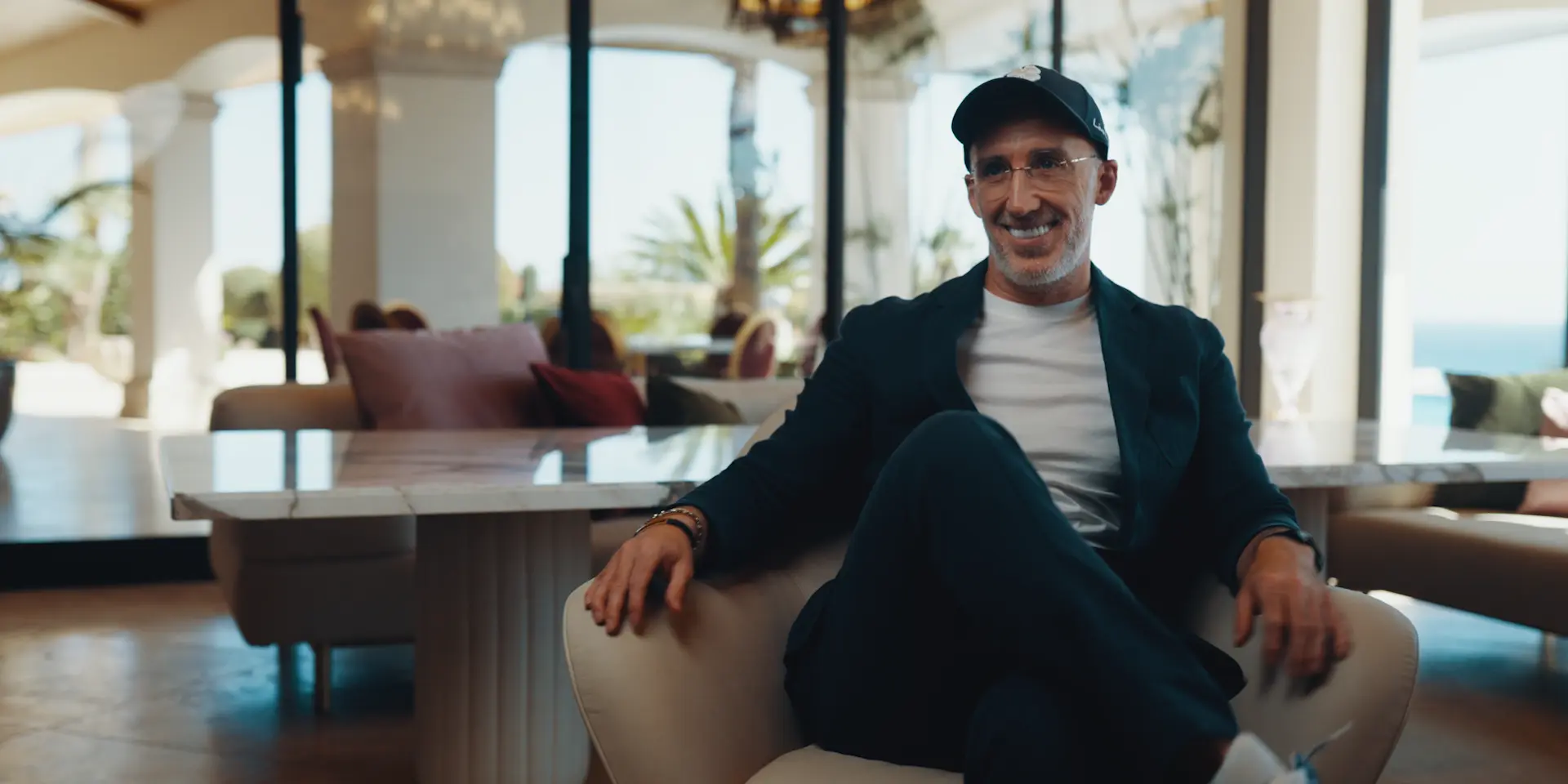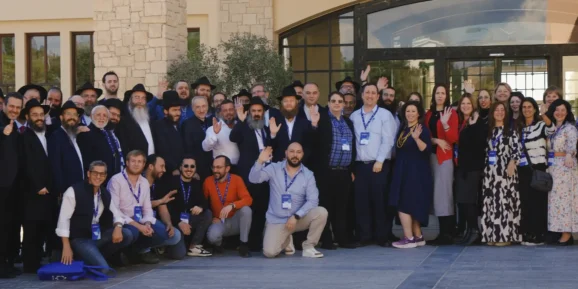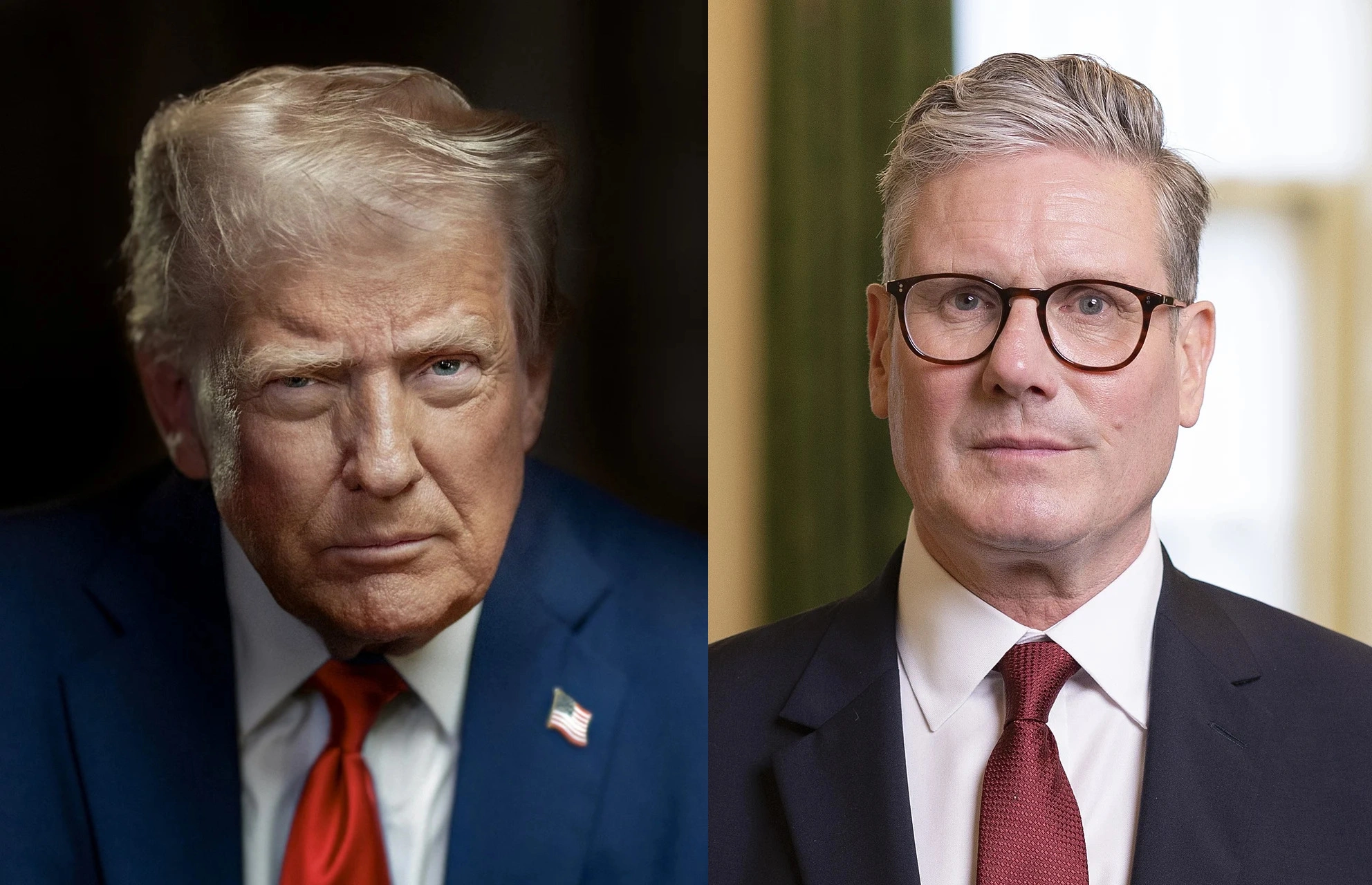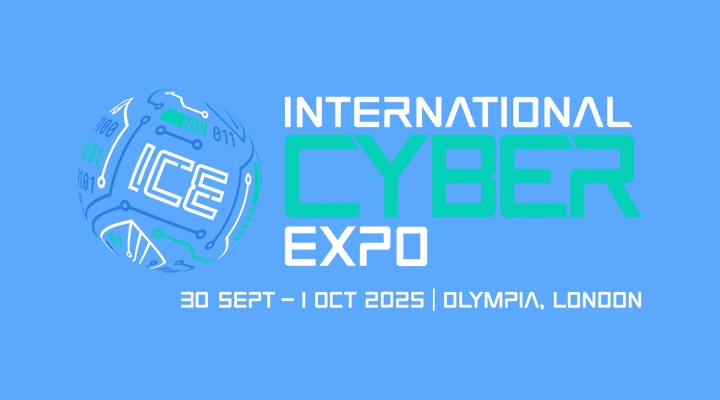The CEO making culture the driving force for innovation

John E. Kaye
- Published
- iGaming, Technology

Uri Poliavich, the founder and CEO of Soft2Bet, has built a global digital gaming company with innovation and social responsibility at its core. From his early life in Soviet Ukraine to leading a business that reinvests in community initiatives, his unique approach combines commercial success with a commitment to philanthropy, education, and cultural enrichment. In a rare media interview with The European, Uri’s remarkable story proves that profit and purpose need never be at odds
Uri Poliavich didn’t start out trying to change the world. He just wanted to make things better. Growing up in Soviet Ukraine, he learned early on that life could be tough; opportunities were rare, and nothing was guaranteed. But instead of being defeated by the challenges around him, he used them as fuel. “I learned very quickly that things could be taken away from you in an instant. If you don’t take control, you’ll be left with nothing,” he said. “I didn’t want that to happen. I wanted to be in charge of my own future.”
Innovation with purpose
That mindset drove him away from law, where he’d trained, into business. Law seemed too predictable, too limiting. “I needed something faster, something that could let me use my energy in a more creative way,” he explained. That spark led him into business development, and it wasn’t long before he was thinking bigger—much bigger. The idea of Soft2Bet, the international tech company he would eventually found, started to form in his mind. Today, it’s a global player in digital gaming, a company recognised for its innovative platforms, including MEGA (Motivational Engineering Gaming Application), a standout casino and sports betting product designed to enhance player engagement across diverse niches.
But for Uri, it’s not just about the core business. “I believe that business should be about more than just making money,” he told me. “It should make a difference. If you’re not doing something that benefits the community, then what’s the point?”
It’s a principle he’s carried into Soft2Bet, where he’s made sure that the company’s growth is not just about profits, but also about giving something back. Soft2Bet has become a symbol of his ambition to combine groundbreaking innovation with meaningful social impact. Through the company, Uri not only drives commercial success but also champions ventures that aim to make a lasting difference. “We focus on more than just selling a product,” he explained. “We want to understand the community we’re entering, to ensure that our business aligns with local needs and brings value to those we engage with.”
Responsible expansion
This approach has been key to Soft2Bet’s global expansion. When the firm enters a new market, it goes beyond simply offering a product. Instead, it collaborates with local organisations and takes the time to understand the specific needs of the community. “Technology, when deployed responsibly, can bridge gaps and create opportunities,” he said. This strategy has set Soft2Bet apart in an often-cynical industry and highlights Uri’s conviction that businesses should serve as engines for social good.

The company’s success has allowed Uri to turn his attention to something else that’s been close to his heart for years—philanthropy. In 2020, Uri and his wife started funding educational programmes for Jewish youth around the world through the Yael Foundation. “A lot of people think that you wait until you’re successful to start giving back,” he said. “But for me, it’s the other way around. Giving back is what pushes you forward.”
Empowering youth
Today, the Yael Foundation supports over 10,000 educational initiatives across 37 countries, reaching more than 13,500 young people every year. These initiatives go beyond academia by helping young people connect with their heritage, build confidence, and find a sense of purpose. One of the standout projects is an annual youth camp in Cyprus, which brings together young people from across Europe for a week of leadership training, workshops, and team-building activities. “It’s about forming connections that last, giving these kids something they can take with them for the rest of their lives,” he said. The camp has become a significant milestone for the foundation, with participants aged 11 to 15 learning lessons that stay with them long after the event ends.
But what makes Uri’s approach to business and philanthropy so refreshing is his belief that the two shouldn’t be separate. “People think of business and charity as two different things,” he told me. “But for me, they go hand in hand. You can’t have one without the other. You reinvest your success back into the community, and that drives your business forward.” This approach has shaped Soft2Bet’s culture. Yes, its bottom line is important, but so too is a sense of purpose that runs through everything it does. “It’s not just about making money but making a difference, however big or small, too,” he said.
As Soft2Bet continues to grow, Uri remains focused on building both his company and his philanthropic initiatives in parallel. “The future is about growth, not just for the company but for the impact we can have,” he said. “We want to continue scaling up, using the technology and resources we have to support new ideas, new ventures, and new communities.” That means more expansion, more partnerships, and more reinvestment in the projects that really matter to him.
For Uri, success isn’t measured by profits or awards. It’s about building something that lasts. “I don’t want to be remembered for just building a business. I want to be remembered for building something that made a difference, something that outlasted the business world itself,” he explained. His belief that profit and purpose can coexist isn’t just a nice idea—it’s the way he runs his companies. And so far, it seems to be working.
His story—from a boy growing up in Soviet Ukraine to the head of a global tech company—proves that determination, creativity, and a sense of purpose can take you far. “It’s not about where you start,” he said. “It’s about the hand you’re dealt—and how you play it.”
Uri has certainly made the most of the cards he’s been given—and this is just the beginning.
Interview: John E. Kaye
Further information
www.soft2bet.com
RECENT ARTICLES
-
 Women, science and the price of integrity
Women, science and the price of integrity -
 Meet the AI-powered robot that can sort, load and run your laundry on its own
Meet the AI-powered robot that can sort, load and run your laundry on its own -
 UK organisations still falling short on GDPR compliance, benchmark report finds
UK organisations still falling short on GDPR compliance, benchmark report finds -
 A practical playbook for securing mission-critical information
A practical playbook for securing mission-critical information -
 Cracking open the black box: why AI-powered cybersecurity still needs human eyes
Cracking open the black box: why AI-powered cybersecurity still needs human eyes -
 Tech addiction: the hidden cybersecurity threat
Tech addiction: the hidden cybersecurity threat -
 Parliament invites cyber experts to give evidence on new UK cyber security bill
Parliament invites cyber experts to give evidence on new UK cyber security bill -
 ISF warns geopolitics will be the defining cybersecurity risk of 2026
ISF warns geopolitics will be the defining cybersecurity risk of 2026 -
 AI boom triggers new wave of data-centre investment across Europe
AI boom triggers new wave of data-centre investment across Europe -
 Make boards legally liable for cyber attacks, security chief warns
Make boards legally liable for cyber attacks, security chief warns -
 AI innovation linked to a shrinking share of income for European workers
AI innovation linked to a shrinking share of income for European workers -
 Europe emphasises AI governance as North America moves faster towards autonomy, Digitate research shows
Europe emphasises AI governance as North America moves faster towards autonomy, Digitate research shows -
 Surgeons just changed medicine forever using hotel internet connection
Surgeons just changed medicine forever using hotel internet connection -
 Curium’s expansion into transformative therapy offers fresh hope against cancer
Curium’s expansion into transformative therapy offers fresh hope against cancer -
 What to consider before going all in on AI-driven email security
What to consider before going all in on AI-driven email security -
 GrayMatter Robotics opens 100,000-sq-ft AI robotics innovation centre in California
GrayMatter Robotics opens 100,000-sq-ft AI robotics innovation centre in California -
 The silent deal-killer: why cyber due diligence is non-negotiable in M&As
The silent deal-killer: why cyber due diligence is non-negotiable in M&As -
 South African students develop tech concept to tackle hunger using AI and blockchain
South African students develop tech concept to tackle hunger using AI and blockchain -
 Automation breakthrough reduces ambulance delays and saves NHS £800,000 a year
Automation breakthrough reduces ambulance delays and saves NHS £800,000 a year -
 ISF warns of a ‘corporate model’ of cybercrime as criminals outpace business defences
ISF warns of a ‘corporate model’ of cybercrime as criminals outpace business defences -
 New AI breakthrough promises to end ‘drift’ that costs the world trillions
New AI breakthrough promises to end ‘drift’ that costs the world trillions -
 Watch: driverless electric lorry makes history with world’s first border crossing
Watch: driverless electric lorry makes history with world’s first border crossing -
 UK and U.S unveil landmark tech pact with £250bn investment surge
UK and U.S unveil landmark tech pact with £250bn investment surge -
 International Cyber Expo to return to London with global focus on digital security
International Cyber Expo to return to London with global focus on digital security -
 Cybersecurity talent crunch drives double-digit pay rises as UK firms count cost of breaches
Cybersecurity talent crunch drives double-digit pay rises as UK firms count cost of breaches



























